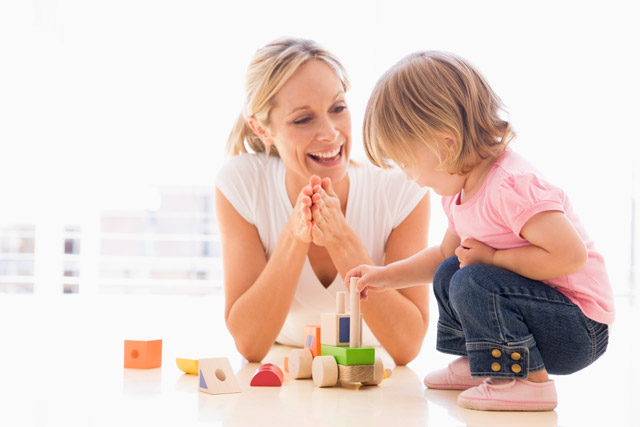

Praise, correctly used, is a powerful and indispensable tool that any parent can use to raise a child right. Kids World finds out more.
Imagine this typical scenario. Your child throws a temper tantrum after you tell her to go to bed. She starts throwing her toys and clothes around the room. Most parents will see red. Some will attempt to calm the child down, or reason with her.
Eventually the child does go to bed, but only after she’s picked up her stuff. This could be either her punishment for messing up, or that reasoning with her worked. You tuck her in, give her a goodnight kiss but oops, you forget to praise her for clearing up the mess.
Should you have praised her, or was it unnecessary as she was being disciplined? To many of us, praise should be meted out if our children do the things that meet our expectations within the social norm, or if it’s good and positive behavior that leads to an accomplishment.
In the above situation, it won’t matter to some parents that something remotely good came out of the experience (e.g. she put her stuff away). What they focus on is the initial undesirable behaviour, so they nag and scold, when in fact, they should praise.
Praising her for picking up her toys won’t turn her into a spoilt brat, even though it may seem that way. What matters is how the praise is given, and that’s where effective praising and effective parenting come into play.
Subconsciously, parents find themselves giving out love and approval to their children only when they are being “good”. They deny praise when kids are “bad”. How then, should this be tackled? Especially in the opening scenario, how should praise be given without spoiling the child?
It certainly helps if the praise is specific and within the right time frame. Be firm and genuine in your praising, not artificial or forced.
Here’s an example of artificial praising in the wrong time frame; that is, before she picks up her toys. It is actually unintentional manipulation of a child’s behaviour:
“Go and show me that you’re a good girl and pick your toys up. Okay, that’s a good girl.”
And here’s an example of specific praising in the right time frame, after she has cleared her toys voluntarily:
“I know you’re sorry for throwing a tantrum because you picked your toys up and put them away. Good girl.”
Continue on next page..
By praising genuinely and correctly, we bolster a child’s self-esteem, confidence and even integrity. We affirm the child’s positive actions, without overlooking her negative ones. The situation mentioned is an extreme example of how praise could have come into play.
There are more obvious situations, which usually involve accomplishments and good behaviour. But the bottom line is, children generally respond well to praise.
“Praise helps most when it conveys not only your approval but lots of information about what your child is doing right,” says Rex Forehand, co-author of Parenting the Strong-Willed Child.
Praising is part of the reward package that parents can give to their children. The first type of reward is of course, the material reward. Some children may, at first, respond only to material rewards, like a sweet, a toy, or money.
But child experts advise that once desired behaviour has been established with a material reward, it should be maintained by a combination of material and social rewards. Social rewards, as opposed to material rewards, are actions that someone adopts to create positive feelings in another person. Praise is a social reward.
Once you’ve combined material and social rewards for your child, you can progress on to just social rewards alone. This will inhibit the development of a situation where the child behaves well only to obtain the material reward. The child should eventually learn to “feel good” merely by the genuine, affirmative tone of your voice and the love and nurturing quality in your actions.

Following on are some strategies on how best to praise your child:
While these guidelines for effective praise is by no means a comprehensive list, it will put you on the right footing to nurture a happy, well-adjusted child. “Remember that making your child feel special is one of your most important tasks as a parent,” says Anita Landau Hurtig, a paediatric psychologist from the Department of Paediatrics at the University of Illinois, Chicago.
“No one can build a child’s self-esteem the way a parent can.”
Continue on next page...
In order to use praise correctly, here are a few common mistakes to avoid:
 Don’t overlook the child. This happens when there is an over-emphasis on the accomplishment, rather than the child. The child will end up equating his self-worth with his tangible successes. If he fails, then his self-esteem will dip drastically.
Don’t overlook the child. This happens when there is an over-emphasis on the accomplishment, rather than the child. The child will end up equating his self-worth with his tangible successes. If he fails, then his self-esteem will dip drastically.
Subscribe to our mailing list and LIKE our Pregnancy and Baby Facebook page for the latest updates on parenting!
Copyrighted Pregnancy & Baby by Mummys Market 2019


